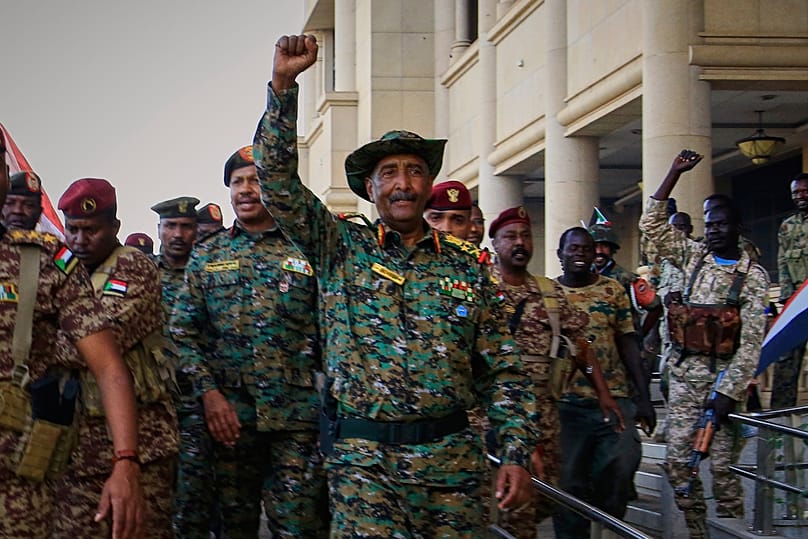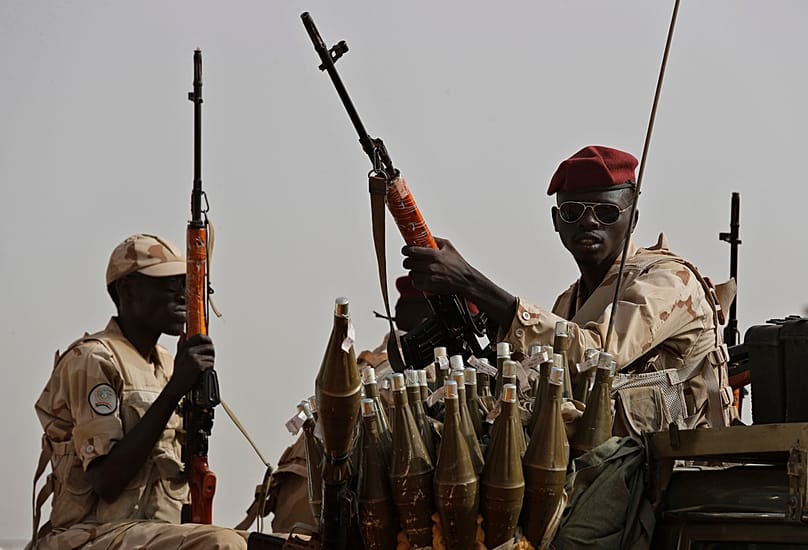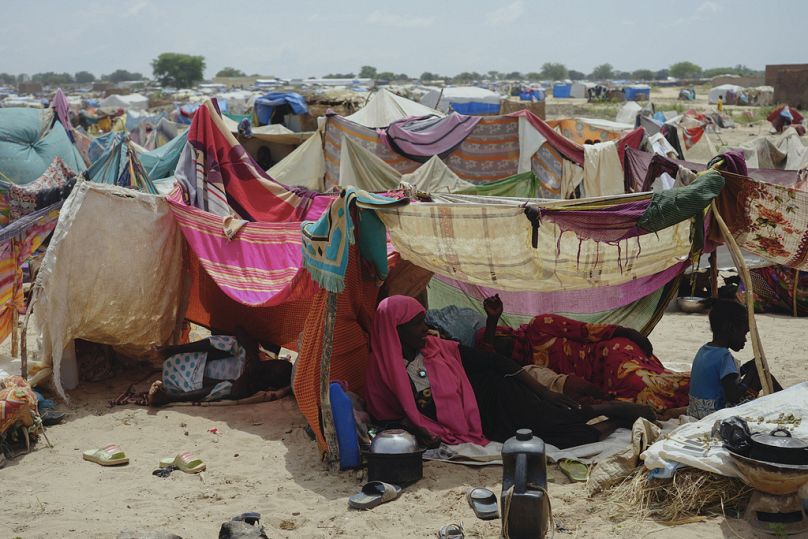The longer the International community looks at the wrong direction, the more Sudan bleeds, Dr Ali Rashid Al Nuaimi writes in an opinion article for Euronews.
Sudan is disappearing. Cities that once pulsed with life have emptied. Eleven million people have fled their homes. Twenty-five million now depend on humanitarian aid to survive. Various investigators confirmed the use of chemical agents against civilians.
 ADVERTISEMENT
ADVERTISEMENT
 ADVERTISEMENT
ADVERTISEMENT
According to the United Nations, Sudan now constitutes the world’s largest humanitarian crisis. Yet even as the country collapses in slow motion, much of the world continues to look in the wrong direction.
At the heart of this misreading lies a dangerously comforting illusion: that Sudan’s war is simply a power struggle between two generals, inflamed by foreign interference.
Within this narrow frame, one accusation has gained disproportionate traction: the claim that the United Arab Emirates is arming one side and fuelling the conflict. It is a story crafted for easy consumption, a narrative simple enough to circulate widely in the era of soundbites and memes.
But it is also a narrative detached from Sudan’s history, blind to its internal realities, and destructive in its consequences. Misdiagnosis is fatal. Every day the world clings to this fiction, more Sudanese lives are lost.
Increasing attraction hub for extremists
To understand Sudan’s present, one must confront its past. Sudan did not arrive at this moment because of external meddling. It arrived here because its institutions were hollowed out from within.
Beginning in the 1970s, the Muslim Brotherhood and allied extremist networks embarked on a deliberate project to capture the Sudanese state. They embedded loyalists across ministries, universities, intelligence agencies, financial systems, and most critically: the armed forces.
By the time Omar al-Bashir seized power in 1989, the state had already been reengineered into an ideological machine. Under the so-called “Civilisational Project,” Sudanese institutions were purged, reshaped, and weaponised for political Islam with the leadership of the Muslim Brotherhood.
Among the most devastating legacies of this era was the rise of the Janjaweed militias, later rebranded as the Rapid Support Forces, armed and empowered not to protect the nation, but to protect Bashir.
The 2019 revolution briefly interrupted this destructive trajectory. Sudanese civilians forced the arrest of leading Muslim Brotherhood figures, but dismantling a network embedded across four decades was beyond the capacity of any two-year transition.
When Abdel Fattah al-Burhan dissolved the transitional government in 2021, he reopened the door to those same networks and released the same people who destroyed Sudan, members of the Muslim Brotherhood.
Later came the clash between Sudanese Armed Forces and Rapid Support Forces in 2023, due to political differences.
Now Sudan is increasingly becoming an attraction hub for extremist organisations. Remnants of the former regime, jihadist groups, al-Qaeda affiliates, the IS group, and regional armed actors have begun re-embedding themselves across Sudan’s political and security landscape.
As state authority collapses, they are filling the vacuum. The implications stretch far beyond Sudan’s borders. Port Sudan sits on one of the world’s most strategic waterways, and a prolonged power vacuum there risks creating a second Hodeidah, a launch point for illicit arms flows, regional proxy warfare, and maritime insecurity that would reverberate across Africa, the Gulf, and Europe.
For the United Kingdom and Europe, the consequences are grave: surging prices, maritime insecurity, and escalating migrant flows into the UK and Europe.
A convenient geopolitical weapon
Yet instead of encouraging a ceasefire and pushing for the opening of humanitarian corridors to help the Sudanese people, too much international energy is spent debating an allegation the UN has repeatedly dismissed: that the UAE is arming the conflict.
The persistence of this claim is not the product of evidence, but of political usefulness. For extremist networks tied to the former regime, vilifying the UAE deflects attention from their own role in destroying Sudan’s institutions.
For regional powers unsettled by the UAE’s rising influence, and by its leadership in peace initiatives, interfaith diplomacy, and especially the Abraham Accords, it offers a convenient geopolitical weapon. For audiences unfamiliar with Sudan’s complex history, it provides a simple narrative at a time when complexity feels overwhelming.
More troubling still is that elements of international media and public debate have allowed themselves, unintentionally or otherwise, to amplify disinformation pushed by networks linked to al-Qaeda, the IS group, and the Muslim Brotherhood. In Sudan, information has become a battlefield of its own: AI-generated images, manipulated photographs, fabricated documents.
It is extraordinary, and profoundly dangerous, that some international institutions now echo narratives seeded by the very extremist movements Sudanese civilians rose up against in 2019, the Muslim Brotherhood.
The factual record is clear. For more than 50 years, Emirati–Sudanese relations have been defined by people-to-people ties, development, humanitarian support, and economic partnership.
Emirati charitable organisations invested in clinics, schools, and infrastructure in communities neglected by their own government. Between 2014 and 2025, the UAE provided more than $3.5 billion in humanitarian and development aid to Sudan.
Since the war began, the UAE has delivered more than $700 million in relief, established field hospitals in neighbouring countries, evacuated civilians, and supported UN agencies operating in famine conditions.
The weapons now circulated online as “proof” of Emirati interference have been repeatedly explained. Military cooperation between the UAE and Sudan was formal, transparent, and long predated the current conflict.
Some originated from Sudan’s participation in the Arab Coalition in Yemen under an internationally recognised mandate, supported by Western powers at the time.
Others were transferred at Sudan’s explicit request during Burhan’s 2020 visit to Abu Dhabi, when he was the internationally recognised head of the transitional government. The RSF later seized these weapons from Sudanese stockpiles after the war began.
These are the facts. They have been confirmed multiple times by experts, including the UN expert panel.
Sudan is dying while the world debates rumours
The narrative that dominates Western and international debate today is, in fact, the most harmful framing the international community could adopt toward Sudan.
The disinformation succeeded precisely because Sudan’s modern political history is so poorly understood abroad and because inconsistent Western engagement created a vacuum in which simplistic narratives thrived.
It is unfortunate that attempts to clarify facts are suppressed, with the UAE unfairly framed as simply "cleaning up its image".
Sudan needs humanitarian corridors opened without obstruction. It needs a sustained ceasefire and a civilian-led political process that excludes the extremist networks and armed actors that destroyed the Sudanese state.
It needs to have an investigation to bring those perpetrators who took innocent lives and destroyed entire families to justice. It needs coordinated engagement, not political distractions, and not the misdirection of blame onto those who are mobilising aid rather than weapons.
Sudan is dying while the world debates rumours started by or spread by networks linked to al-Qaeda, the IS group, and Muslim Brotherhood affiliates and their supporters. The longer the international community misreads this crisis, the heavier the price Sudanese civilians will pay.
If the international community is to play a meaningful role in stabilising Sudan, it must begin by seeing the crisis clearly, engaging in the right discourse, coordinating diplomatic efforts, and speaking in one language.
The Sudanese people, trapped between famine, gunfire, and human rights violations, cannot afford another year of the world getting their story wrong.
Dr Ali Rashid Al Nuaimi serves as Chairman of Defence Affairs, Interior, and Foreign Affairs Committee at UAE Parliament (Federal National Council).













